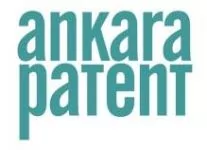In this paper scrutinizing Bolar exemption in terms of plant protection products, before entering into details, it will be helpful to describe the difference between protection of a plant protection product under patent right on one side and authorisation of it on the other side. This means to say that protection of a plant protection product under patent right and authorisation and introduction of it to the market are subject to two different systems.
Patent right provides its owner with the right to ensure prevention of manufacturing and marketing of its product by third parties in the country of registration. However, to have a patent right is not adequate for launching and introduction of the product to market. A product may be introduced to market only if and after it is duly authorised by the related official authorities within the frame of national applicable laws and regulations.1
For performance of plant protection product studies in a harmless manner, at least two experiments are required to be conducted. In Turkey the related organisations are obliged to receive a prior permission for these experiments from the Ministry of Agriculture and Forest. After completion of these studies, just like the pharmaceuticals, plant protection products are also registered and authorised through a certain application process. More than 5,000 plant protection product authorisations have so far been granted in Turkey.
In addition, there are plant production product patents registered in the name of a lot of firms, particularly Bayer, Sumitomo Chemical and Novartis in Turkey.
Bolar Exemption in Plant Protection Products
As known, patent right terminates upon expiration of protection period of the patent. In the Turkish Law, patent protection period is 20 years starting from the date of application, and protection expires at the end of this period. However, expiration of patent protection period does not automatically make the patent available for use by everyone and open the plant protection products or pharmaceuticals covered by patent right to free access by people. That is why after termination of patent protection right, equivalent (generic) drugs2 are introduced to market.
However, although not covered by patent right, equivalent drugs are also required to be registered and authorised, and the authorisation process takes a very long time. The world of law has brought some provisions and arrangements for the competition between equivalent drugs and original drugs starting upon expiration of patent protection period of original drug. Thus, a balance is tried to be built between the inventor and the public interests in the Turkish Law.
In order to ensure that equivalent drugs are introduced to market immediately after expiration of patent protection period of original drug, the related invention is permitted to be used for experiments and tests before the end of patent protection period without a prior consent of patent owner.
Permission given for experiments and tests conducted on invention during said authorisation process without a prior consent of patent owner is called "Bolar exemption".
This exemption is relied upon "Roche vs Bolar" case arising out of a dispute between "Roche", a drug manufacturer", and "Bolar", a generic drug manufacturer, in U.S.A. for the first time. Roche has sued Bolar on the grounds that Bolar breached its patent rights by conducting tests on its registered and patented active ingredient. At the end, the Federal Court has stated that the subject tests are conducted for economic purposes, thereby breaching the patent right, and come to the conclusion that another legal exemption should be formulated thereinfor. After this judgment, an amendment has been made by the law known as "Hatch-Waxman Act", and thus, Bolar Exemption has been enacted.3
In the Turkish Law, for the first time on 22 June 2004, by paragraph (f) of Article 75 of the Decree-law on Protection of Patent Rights no. 551, the acts for trial purposes covering the registered invention, also including the authorisation of drugs and the tests and experiments needed thereinfor, have been left outside the scope of rights granted by patent.
Then, on 10 January 2017, the Decree-law on Protection of Patent Rights has been repealed and superseded by the Industrial Property Law no. 6769, of which paragraph 75/3-c has been formulated parallel to the aforesaid Decree-law.4
Pursuant to the Turkish Law, sample production, and preparation, production and development of active ingredient, and mass production, and storage before the end of patent protection period are not covered by Bolar exemption which only encompasses the experiments and tests at the authorisation stage. To put it in other words, sample production, and preparation, production and development of active ingredient constitute an infringement on patent right, and only the experiments and tests at the authorisation stage are not considered and treated as an infringement.5
Authorisation for plant protection products is subject to regulations and provisions different from those used for authorisation for human pharmaceuticals. According to Article 5 of the Regulation on Authorisation and Placement on Market of Plant Protection Products, all firms applying to the Ministry for an authorisation for plant protection products are under obligation to receive a Plant Protection Products Operating Certificate, which remains valid and in force for a period of two years. Plant protection products not registered and authorised in reliance upon that Regulation are forbidden to be placed on market and used within the borders of our country. Submittals required to be presented to the Ministry are also regulated in details in the Regulation.
Because there are some landmark decisions of the Supreme Court of Appeals verifying that an application filed for an authorisation for plant protection products and the tests and experiments conducted for said application for authorisation do not infringe the patent right as they are covered by 'acts for trial purposes' envisaged as an exception in the Law.
Please find below some brief explanations about two of these decisions considered to be important:
Decision dated 03.03.2015 of 11th Civil Law Chamber of the Turkish Supreme Court of Appeals6:
The firm X, patent right owner of "spiro diclofen", active ingredient of the drug X1 sc 240, which has also registered the same in the Ministry of Agriculture and Forest, has sued the defendant on the grounds that the defendant is promoting and is at the stage of application for authorisation for a product named X2 containing spiro diclofen as active ingredient, and requested the court to determine, declare and prevent such unfair competition act, and to order disclosure of its verdict to public.
The Supreme Court of Appeals has decided AFFIRMANCE of the local court judgment dismissing the action on the grounds that the application filed by the defendant for authorisation to the Ministry of Agriculture is by nature not an infringement on rights of patent owner arising out of its patent certificate pursuant to Article 75/1-2 of the Decree-Law no. 551, and that the plaintiff has failed to prove its other arguments and claims.
Decision dated 21.12.2016 of 11th Civil Law Chamber of the Turkish Supreme Court of Appeals7:
This case has been commenced on the grounds that an application filed for drug constitutes an infringement on the existing drug patent of the plaintiff company. In its decision, the Supreme Court of Appeals has concluded that an application filed for authorisation of drug does not alone constitute an infringement on the existing drug patent of the plaintiffs, because by paragraph (f) of Article 75 of the Decree-law on Protection of Patent Rights no. 551, the acts for trial purposes covering the registered invention, also including the authorisation of drugs and the tests and experiments needed thereinfor, are left outside the scope of rights granted by patent, and it could not be proven that the defendant has committed any acts constituting a danger of infringement other than the application for authorisation.
Exemption based on the principle that experiments and tests conducted for trial purposes do not infringe on the patent right is called "Bolar exemption", and according to this exemption, tests and experiments needed for applications for authorisation in respect of drug patents do not constitute an infringement on patent right. Just like medical human pharmaceuticals, plant protection products are also required to be registered and authorised before use, and it is soon that the landmark decisions consider the tests and experiments conducted for such applications for authorisation also within the frame of Bolar exemption. Accordingly, it is understood and noted that the scope of Bolar exemption stipulating that the registration and authorisation of drugs covered either by the Decree-law no. 551 and by the Industrial Property Law and the tests and experiments needed thereinfor do not constitute an infringement on patent right is not only limited by medical human pharmaceuticals, but also applied in applications filed for authorisation for plant protection products.
Aysu TAŞ (Of Counsel)
Footnotes
1. Huysal, Ayşegül Sezgin. "İlaç patenti." Marmara University, 2009, https://tez.yok.gov.tr/UlusalTezMerkezi/tezDetay.jsp?id=bzOTJUyXjCc8vjBU9I5PMA&no=2exxumkZFr_FnYke6ER6lQ p. 33
2. Generic pharmaceuticals are medications that have been scientifically proven to have the same properties as the reference pharmaceutical and therefore provide the same therapeutic results on the patient and are presented for sale after the protection periods of the reference pharmaceuticals have expired.( Source: http://www.ieis.org.tr/ieis/tr/esdeger_ilaclar#:~:text=E%C5%9Fde%C4%9Fer%20ila%C3%A7lar%2C%20referans%20ila%C3%A7larla%20ayn%C4%B1,ayn%C4%B1%20etkinlik%2C%20kalite%20ve%20g%C3%BCvenilirliktedir.)
3. Kaya, B. "Application of Bolar Exemption Under The Scope of Article 85/3 of The Industrial Property Law". İstanbul Law Review 76 (2018 ): s. 430 (https://dergipark.org.tr/tr/pub/ihm/issue/44579/553298)
4. Scope of a patent right and its limits Industrial Property Code no 6769
ARTICLE 85 - (1) The patentee avails himself of the patent right without any exceptions of where the invention was made, its technological area and whether the products are imported or are domestic.
(2) The patentee has a right to claim the prevention of the practices mentioned below in case that they are performed without his consent:
a) producing, selling, using or importing the goods subject to a patent or keeping those at hand for such purposes and for other reasons than personal needs;
b) using a process that is subject to a patent;
c) offering others to use the process patent the use of which is known or should be known to be prohibited;
ç) selling, using or importing the goods which are directly obtained by the process subject to a patent or keeping them at hand for such purposes and for other reasons than personal needs.
(3) The practices mentioned below shall be out of the scope of the rights provided by a patent:
a) practices which do not involve industrial or commercial purposes and are confined to special purposes;
b) trial practices involving the invention subject to a patent;
c) trial practices involve the performances of the invention subject to a patent in order to registrate drugs including necessary tests and experiments needed for this purpose;
ç) using the drugs prepared in pharmacies without a mass production in order to prepare only one prescription and practices regarding drugs prepared this way.
5. Kaya, ibid, p. 433
The content of this article is intended to provide a general guide to the subject matter. Specialist advice should be sought about your specific circumstances.

